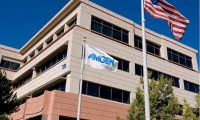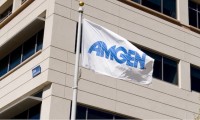-
FDA panel says Amgen’s Phase III lung cancer KRAS drug data is unreliable
- Source: drugdu
- 172
- October 10, 2023
-
Amgen Fails to Secure FDA Adcomm Support for Full Lumakras Approval
- Source: drugdu
- 124
- October 9, 2023
-
Amgen Completes Purchase of Horizon Therapeutics
- Source: drugdu
- 192
- October 8, 2023
-
Amgen and Horizon Therapeutics settle FTC lawsuit
- Source: drugdu
- 171
- September 6, 2023
-
Amgen’s $28B Horizon buyout cleared for takeoff after FTC, states settle
- Source: drugdu
- 108
- September 5, 2023
-
FTC pulls back on legal challenge to Amgen’s $28B bid for Horizon
- Source: drugdu
- 115
- August 30, 2023
-
Amgen and Horizon call FTC’s attempt to block $28B merger unconstitutional in counterclaims
- Source: drugdu
- 112
- July 6, 2023
-
Amgen’s supplemental Biologics License Application for Blincyto approved by FDA
- Source: drugdu
- 106
- June 27, 2023
-
States Back FTC in Lawsuit Seeking to Block Amgen-Horizon Deal
- Source: drugdu
- 117
- June 25, 2023
-
Amgen, Horizon blast FTC’s ‘baseless assumptions’ in response to antitrust lawsuit
- Source: drugdu
- 109
- June 15, 2023
your submission has already been received.
OK
Subscribe
Please enter a valid Email address!
Submit
The most relevant industry news & insight will be sent to you every two weeks.













